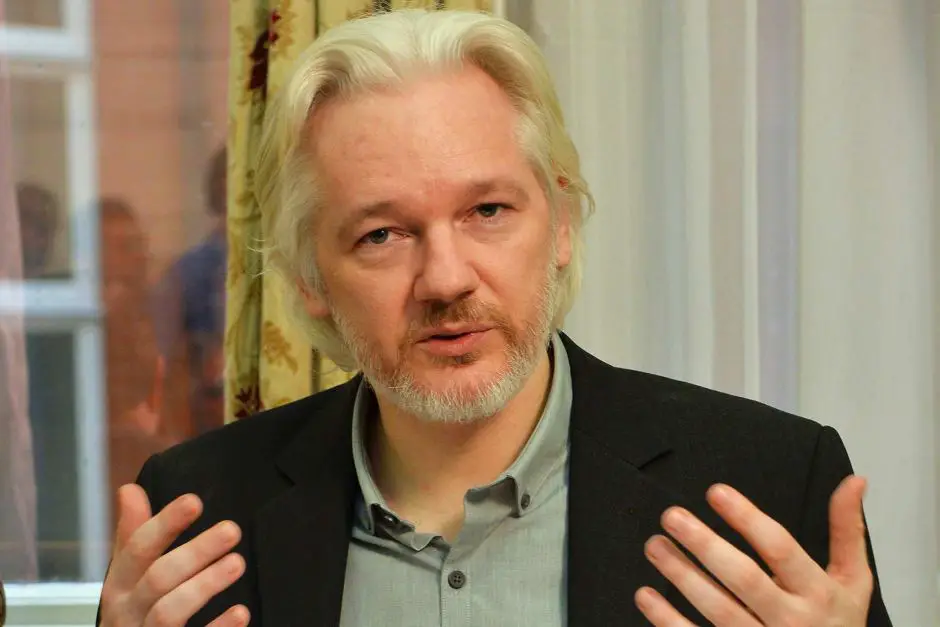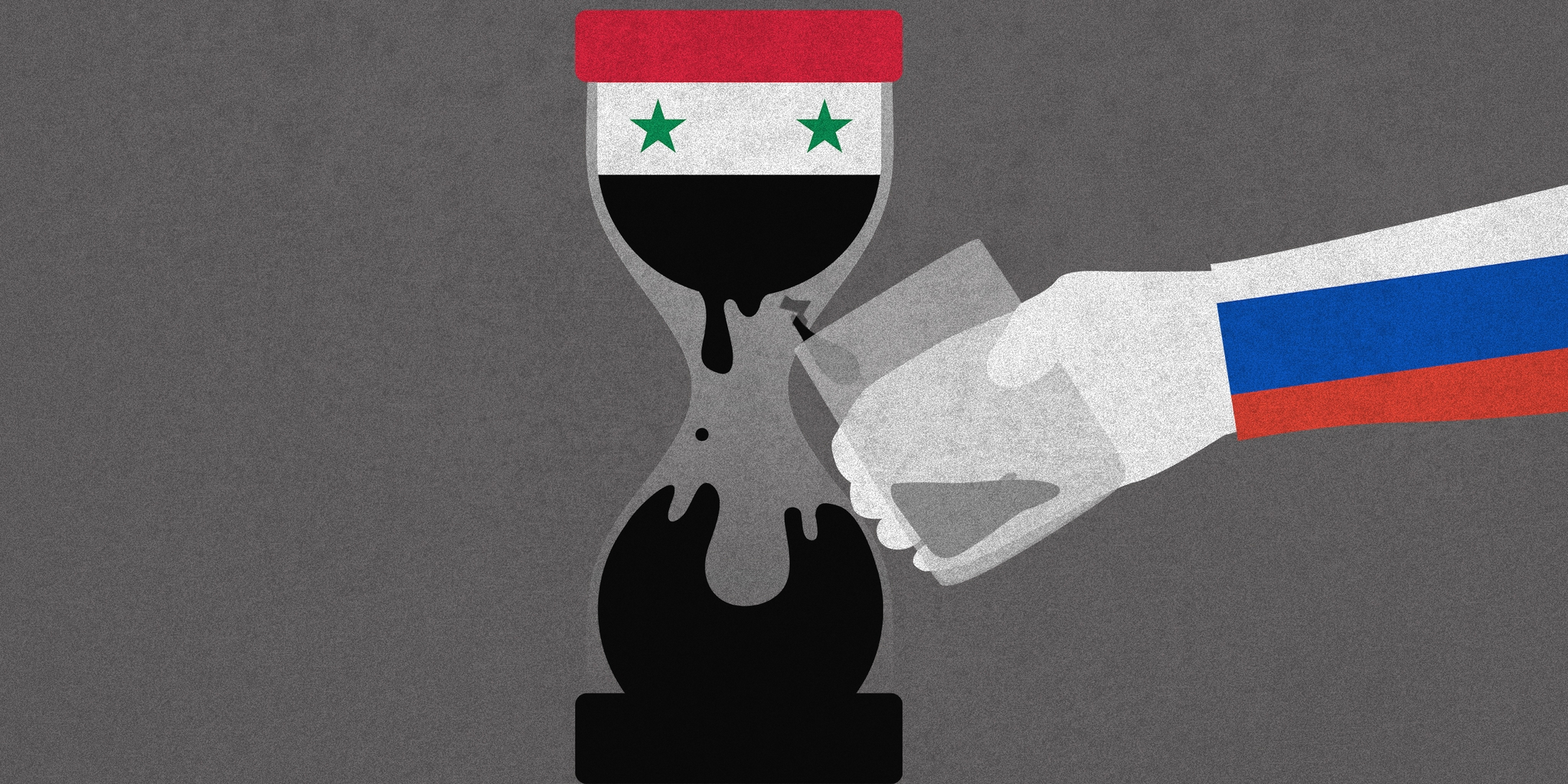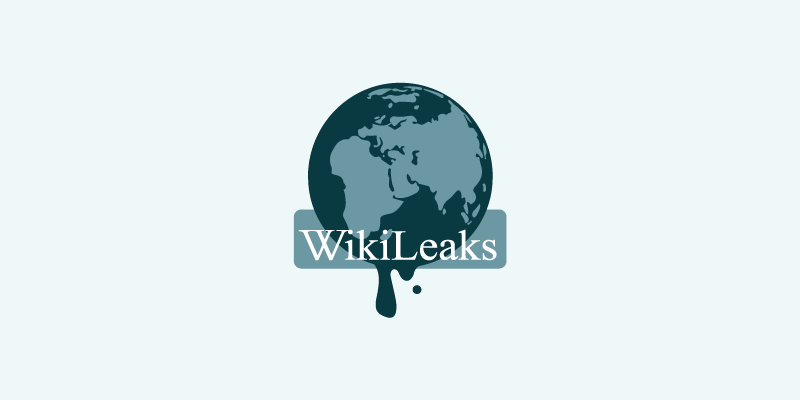Activist Martin Luther King Jr. once said, “Peace if possible, truth at all costs.” WikiLeaks is an international media and activist organization that works to promote peace through truth, though they, like MLK, know that the truth will not always be peacefully received.
The internet has provided humanity with a wonderful tool to communicate unlike ever before. With the advent of email and other forms of social media, people have the ability to share information instantly with anyone across the world. Pictures of cats, advertisements and porn make up a large percentage of what is to be found on the web, but if you understand the technology well enough, and you ask the right questions, you can find some rather serious content.
Julian Assange, activist, founder and Editor-in-chief of WikiLeaks, understands the importance of such technology, and seeks to provide the public with an honest glimpse into what goes on behind the curtains—or behind the kittens, if you will.

The organization’s website says, “WikiLeaks specializes in the analysis and publication of large datasets of censored or otherwise restricted official materials involving war, spying and corruption. It has so far published more than 10 million documents and associated analyses.”
Having recently celebrated a hard fought ten-year anniversary, WikiLeaks is currently making history with an unprecedented release of documents involving possible criminal behavior by Hillary Clinton and other high-level U.S. government officials and major media outlets. The organization has placed itself right in the middle of the controversy of the 2016 presidential election, and is now being accused of acting as a tool for Russian intervention.
WikiLeaks claims to offer a secure and anonymous process for whistleblowers to come forward and report government wrongdoing to the public at large, an important service that does in fact need to be provided in an increasingly cyber-oriented world. With a ten-year history of accurate releases of more than ten million documents, WikiLeaks should not be taken for granted and should not be considered an enemy for exposing the truth about corruption.
Below is a brief timeline that highlights some of the significant releases by WikiLeaks. Take note that this battle for truth creates powerful enemies, and can come at a high cost for those involved.
2006
A computer programmer from Queensland, Australia, named Julian Assange creates the domain name, WikiLeakes.org. Assange has since served as the founder and Editor-in-chief.
In 2006 the website issues its first data link, a communiqué showing Somalian rebels calling for government assassinations.
2007
The first major media partnership for WikiLeaks was with “The Guardian,” a British news outlet. Together they released and reported on the corruption of Kenya’s President David Arap Moi.
Also published was a training and treatment manual for Guantanamo Bay guards, causing a plea for humanitarian interjection.
2008
Documents from the United Nations showing sexual abuse and fraud by peace keepers are released.
Leaks regarding Swiss banks and other European banking policies reveal tax evasion and money laundering.
2009
The Church of Scientology becomes a victim when their secret bible is given to WikiLeaks, who in turn released it to the public.
Documents exposing the Barclays Bank tax scam are published.
2010
In its most notorious release at the time, Wikileaks reveals “Collateral Murder” footage and other material regarding Afghanistan and Iraq war logs that depict war crimes, most of which had been leaked by Private Chelsea (formally Bradley) Manning who was subsequently arrested. At this point, WikiLeaks has released more classified documents than the media of the rest of the world combined.
The organization’s finances are frozen and suspended, and attempts to take down or ban the website are made. Assange is placed on Interpol’s most wanted list, accused of sexual misconduct in Sweden and arrested.
2011
WikiLeaks is nominated for a Nobel Peace Prize.
Assange is granted bail, but the organization suffers internal disputes and some staff break off to form OpenLeaks.org.
Facing legal and financial difficulties, the site publishes less information than normal.
2012
Stratfor, a Texas based global intelligence agency, has 5 million of its emails published.
Battling extradition to Sweden, Assange is granted political asylum within the Ecuadorian embassy in the U.K. He remains in the embassy to avoid arrest for what are considered to be false allegations designed to allow Sweden to send Assange to the U.S.
2013
The text of the secretive and controversial Trans-Pacific Partnership (TPP) is released, causing backlash from the public. The subject becomes a hot topic in the 2016 presidential election.
Private Manning, still battling in court, is found guilty of espionage.
Edward Snowden, who fled the U.S. and is currently under political asylum in Russia, leaks information to “The Guardian” detailing the National Security Agency’s data collection and surveillance apparatus.
2014
More files detailing NSA spying as well as other programs and methods are published.
More parts of the TPP are published as well.
2015
Cables and documents from Saudi Arabia published.
Emails of CIA Director John Brennon are leaked.
Additional evidence of NSA surveillance involving foreign leaders is released, causing distrust in U.S. foreign relations.
2016
Hilary Clinton emails and the transcripts of her paid speeches are finally revealed. In them, she mentions having both a “public and a private position.”
Democratic National Committee (DNC) emails are leaked and released, showing strategy and collusion between the Clinton campaign, the DNC and the media; Bernie Sanders in particular was the victim of the tactics as he lost the nomination. Four top DNC Chairpersons, including Debbie Wasserman Schultz, are forced to resign following the leaks.
Clinton Campaign Chairman John Podesta’s emails are added to the list of published transcripts as well. Podesta’s emails have further suggested the campaign’s involvement in questionable tactics, such as “oversampling” of public polling to favor Clinton.
Private Manning tries to commit suicide; after failing, she is placed in solitary confinement.
Julian Assange enters his fifth year of political asylum stuck within the Ecuadorian embassy in the U.K. A recent decision was made by the embassy to cut internet access to Assange to prevent further election interference.
James O’Keefe and Project Veritas, a separate investigative journalist organization, added fuel to the fire with their release of hidden footage. The videos explain how operatives of the Clinton campaign deliberately used people to incite violence at Trump rallies and actively commit voter fraud by visiting multiple polling stations to vote multiple times.
So what is so important about Wikileaks’ releases involving Clinton?
Well, most importantly, it seems that flagrant attempts are being made by the Clinton campaign to discredit the leaked information by blaming the source on Russian hacking. The Obama administration has also come out accusing Russian President Vladimir Putin of manipulating the presidential election, yet both are disregarding the evidence that indicates that Clinton’s campaign and the media are the ones doing the most manipulating.

As a result of their involvement, WikiLeaks has caused serious international hostility, and according to a “Meet the Press” interview with Vice President Biden, the U.S. is planning to retaliate against the Russians. Such provocations are leading to increased tensions between the two nations, who are already involved in heated conflicts in other areas such as Syria and Ukraine, where peace negotiations have deteriorated and the threat of war is a high possibility.
Putin responded to Biden’s remarks in an interview with Russian media, saying that blaming the Russians for the leaks is only a distraction and fear tactic, but still cause for concern, so much so that the Russian Ministry of Defense warned of possible nuclear war and trained 40 million citizens on how to prepare. Talk about fear tactics.
Right now the doomsday clock sits 3 minutes away from midnight, a position not seen since the cold war. Will it be emails that cause the final ticks?
Providing the truth can be a difficult and sometimes dangerous thing to do, and your enemies may go to extreme lengths to silence you. But in times like these I’m reminded of the words of another activist, Malcom X, when he said, “I’m for truth, no matter who tells it. I’m for justice, no matter who it’s for or against.”










